[vc_row][vc_column][vc_single_image image=”949″ img_size=”full” alignment=”center”][vc_custom_heading text=”“A Piece of My Mind”” font_container=”tag:h1|font_size:50px|text_align:center|color:%232633ef” google_fonts=”font_family:Bitter%3Aregular%2Citalic%2C700|font_style:700%20bold%20regular%3A700%3Anormal”][vc_custom_heading text=”May 2018 Newsletter” font_container=”tag:h1|font_size:30px|text_align:center|color:%232633ef” google_fonts=”font_family:Bitter%3Aregular%2Citalic%2C700″][/vc_column][/vc_row][vc_row][vc_column width=”2/3″][vc_column_text]
Advancing Christian Faith and Values,
Defending Religious Liberty for All,
Supporting Civility and the Common Good
through Preaching, Teaching, Writing, Activism and Reasoned Conversations
www.donaldshoemakerministries.com[/vc_column_text][/vc_column][vc_column width=”1/3″][vc_single_image image=”687″ img_size=”full” alignment=”center”][/vc_column][/vc_row][vc_row][vc_column width=”1/2″][vc_column_text]
Are Ministers Really
“Different” and
Should They Be
Treated Differently?
 [/vc_column_text][/vc_column][vc_column width=”1/2″][vc_column_text]
[/vc_column_text][/vc_column][vc_column width=”1/2″][vc_column_text]
Politics Dilutes the Gospel
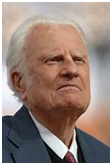 “Being involved in strictly political issues or partisan politics inevitably dilutes the evangelist’s impact and compromises his message. It is a lesson I wish I had learned earlier…”
“Being involved in strictly political issues or partisan politics inevitably dilutes the evangelist’s impact and compromises his message. It is a lesson I wish I had learned earlier…”
– Billy Graham’s memoir (2011)
[/vc_column_text][/vc_column][/vc_row][vc_row][vc_column][vc_column_text]
Message of the Month –
Are Ministers Really “Different” and
Should They Be Treated Differently?
By Donald P. Shoemaker
I come from a Protestant tradition that emphasizes very strongly there should be no difference between clergy and lay people. As it turns out, as I’ve seen from 49 years of pastoral experience, this can be more theory than practice.
Recently I saw several postings for pastoral job positions in churches. Some were quite demanding in their expectations. But one feature stood out in all of them, prominent because of its absence.
Not one word was said about salary, benefits or work-related expenses.
Not one word about:
• Salary – What salary will this church offer the pastor? Does it prefer a candidate with a master’s degree or more? What about years of experience? What does the church expect on these points, and will it compensate accordingly? Does the church plan to pay a pastor on a par with comparable professions represented in the congregation? Or is it going to pay at the level of an entry-level worker?
• Benefits – What kind of health, dental and vision insurance will the church offer? What kind of retirement plan? Vacation time and sick time? Disability insurance and term life insurance? Will the church offset at least half of Self-Employment Tax (the IRS considers clergy “self employed” when it comes to Social Security, so clergy pay 16.3%)?
• Work-related expenses * – Will the pastor receive a mileage reimbursement and coverage for church-related travel? What about the cost of books, software and other items necessary to doing the work of ministry? Will the church encourage continuing education and fund it? Will the church provide a sabbatical every seventh year? (Many churches don’t have to bother with this last question, because they’ve never had a pastor stay that long!)
In contrast, I see job postings all the time from secular sources. These features are prominent, without compromising the job expectations.
There are other issues. Is there a job description and, if so, is it biblical and realistic? Are expectations, perimeters, and authority clear? If a pastor has no job description, the “unwritten” ones will come to haunt him again and again.
To whom is the pastor accountable, and will the church guard this line of authority against critics and self-appointed bosses (“After all, don’t forget you work for me!”)? What are the church’s employee policies? Does the church have an established vision or is it expecting the new pastor to create it? What will the new pastor know a year from now that he ought to know right now?
Christianity has often dealt with what’s called “Gnostic Christology”. That’s when Jesus is thought of as a divine being whose humanity is somewhat a compromised thing. Is Jesus really, really one of us?
Let’s face up to one Gnostic tendency in church life. The pastor is made to be a human being of an elevated sort. His level of spirituality lets him float above material needs and emotions, struggles and burdens that concern the rest of us. He may even encourage this elevated view of himself, which shows how his proximity to God makes him immune to what afflicts average mortals.
Pastors supposedly live by faith, looking to God to supply what the church won’t supply, and what members of the church would want their own employers to supply. ** One church—among many I’m sure—told its pastor to “trust the Lord” about health care! An article in my denomination’s magazine years ago said if a pastoral candidate were truly a man of faith, he wouldn’t inquire about salary before accepting the new position. The article was written by a non-pastor—an educator who worked under a contract!
Here are two scriptures for Pastors to ponder:
“Do not think of yourself more highly than you ought, but rather think of yourself with sober judgment.” (Romans 12:3 NIV)
“If anyone does not provide for his relatives, and especially for members of his household, he has denied the faith and is worse than an unbeliever.”
(1 Timothy 5:8)
And here are two scriptures for Congregations to ponder:
“Who serves as a soldier at his own expense?” (1 Corinthians 9:7 in context)
“The elders who direct the affairs of the church well are worthy of double honor, especially those whose work is preaching and teaching. For Scripture says,
‘Do not muzzle an ox while it is treading out the grain,’ and ‘The worker deserves his wages.’” (1 Timothy 5:17-18)
NOTES:
* With the new tax law eliminating Employee Business Expenses (which was not a very good deduction in the first place), it is all the more imperative that churches have an ACCOUNTABLE reimbursement procedure in place to cover the pastor’s business expenses—something progressive churches would have been doing all along anyway. This is NOT an expense allowance, which is taxable. Likewise, there should be a mileage reimbursement procedure for use of a vehicle, NOT an auto allowance (also taxable). Furthermore, it would be UNJUST to adjust the pastor’s salary downward to offset the cost of covering these expenses.
** “Hyper-Calvinism” might be the right term for this version of “faith.” In Hyper-Calvinism, the end (for example, that God will provide for us) is separated from the means (what responsibilities we or others have to secure this care). If this kind of “living by faith” describes how a pastor ought to live, then other “more ordinary” Christians (who negotiate in their employment, sign contracts, have job descriptions and employment policies, join unions, etc.) must be “living by works.” If the former evidences trusting God then the latter must evidence lack of trust in God.
But this whole way of thinking is wrong![/vc_column_text][/vc_column][/vc_row][vc_row][vc_column][vc_column_text]
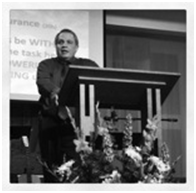 Don’s Upcoming Ministries
Don’s Upcoming Ministries
May 13 (Mother’s Day) – Speak in morning worship services (8:00, 9:30, 11:00) at Grace Community Church of Seal Beach on the Book of Ruth, chapter 2.
May 15 & 18 – Teach on The Epistle to Philemon at Women Bible Study, Grace Community Church of Seal Beach (6:30 pm on Tuesday, May 15 and 9:30 am on Friday, May 18).
[/vc_column_text][/vc_column][/vc_row][vc_row][vc_column][vc_column_text]
Bible Insight – SIGNS of Pentecost (Acts 2:1-13)
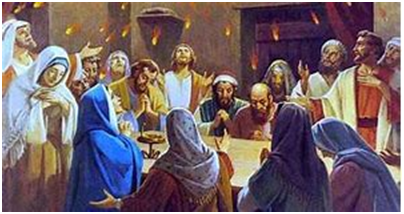
When the day of Pentecost came, they were all together in one place. Suddenly a sound like the blowing of a violent wind came from heaven and filled the whole house where they were sitting. They saw what seemed to be tongues of fire that separated and came to rest on each of them. All of them were filled with the Holy Spirit and began to speak in other tongues as the Spirit enabled them. – Acts 2:1-4 New International Version
What was the Day of Pentecost? *
—The day to observe the “feast of weeks” when the grain harvest was celebrated in anticipation of greater harvest to come (Leviticus 23:15-22).
—The day God’s Spirit was poured out on the waiting disciples—disciples who had seen the Lord Jesus depart from them ten days earlier.
—The day that launched a Movement that would change the world within a few generations.
There were three Signs of the first Christian Pentecost:
Sound of wind – Sign of the Spirit’s Power
STongues of fire – Sign of the Spirit’s Presence
Speaking in “tongues” – Sign of the Spirit’s Plan
* Pentecost is observed this year on Sunday, May 20.
“Speaking in tongues”, to say the least, remains quite controversial. To some, it was a passing phenomenon with a purpose for that occasion and without lasting significance. Some who hold this are called “cessationists”—they believe that the “sign gifts” (as they call them) ceased after the apostles’ day and when the New Testament was completed. They base this on an interpretation of 1 Corinthians 13:8-12 which I simply do not find compelling. For instance, I doubt very much the Apostle Paul ever envisioned a day when there would be a completed canon of Scripture we call “The New Testament.”
At the other extreme are those who see “speaking in tongues” as the sine qua non of spiritual attainment—one is not “filled with the Holy Spirit” or “living in the Spirit” unless he or she evidences these realities by speaking in tongues. In my opinion, this position depends on cherry-picking a few isolated scriptures that are then interpreted and applied very questionably.
What can we say about this phenomenon? Two points:
First of all, let’s demystify “speaking in tongues” with a literal translation: “They began to speak in other languages” (heterais glossais) as prompted by the Spirit. And we are told what these languages were (verses 8-11).
Second, in context, the “languages” were the sign that the good news about Jesus would be spread to the nations—across linguistic boundaries and much more. What better way to signify the universality of the Christian Gospel than to declare God’s deeds in the native languages of the region? If you want to keep a message “in house” you use secret language, unintelligible to others. But if you want to spread a great message you use all the languages around.
The Aramaic tongue of Jesus and his disciples would have been known by all who were gathered in Jerusalem. The miracle of Pentecost was that other languages, not Aramaic, pointed to the spread of the Gospel to every nation and people. The significance of “speaking in tongues” was this then:
The crowd attracted by the miracle could hear the disciples speak “the wonders of God” in the native languages they understood. What made “tongues” a powerful sign of the Spirit was that what was said was understood!
Jesus’ prayer in Aramaic (“The Lord’s Prayer”) overturned the notion of a sacred “language of God.” Pentecost took this a step further—the Gospel door was swung open to all languages and cultures.[/vc_column_text][/vc_column][/vc_row][vc_row][vc_column][vc_column_text]
Speaking in Tongues (Acts 2:4)
By the Spirit’s prompting
the disciples spoke in other languages—
languages unknown to them but known to those who heard.
They spoke words that were understood—
Words about God’s mighty deeds.
[/vc_column_text][/vc_column][/vc_row][vc_row][vc_column][vc_column_text]
An Open Message to my Pentecostal Friends and Colleagues…
As a teen I felt spiritual inadequacy in my church and in my own life. I was drawn to Pentecostalism to see if it had “more of God” for me. After five years I left the movement, but not without much appreciation for what it offers (at the top: worship and teaching on the Spirit). And in it I met my wife-to-be!
I’ve followed this movement closely ever since, including its “Charismatic” variety (Protestant and Catholic). I have these two concerns:
First, while there has been progress in seeing the work of the Holy Spirit as broader throughout Christian communities, an exclusivism remains strong in many Pentecostal circles, as if this movement still has the Spirit in its corner. Rather, Pentecostalism is within the domain of the Spirit, not congruent with it.
Second, the Pentecostalism I knew did not have various kinds of techniques on how to get people to speak in tongues. This feature is strong in some circles.
“Open up your mouth, move your tongue and give voice to what the Holy Spirit will pray through you. He will not force you, but as you activate faith He will flow through you with this utterance gift.” (“Speaking in Tongues—Your Powerful Plus” by Becky Dvorak, CharismaNews, March 18, 2018).
This is totally absent from the New Testament and it would have destroyed the evidential witness of this phenomenon in Acts 2:1-39; 10:44-48; 11:15-18.
This attempt to appropriate the Spirit by means of works is legalistic. It would be like teaching people how to produce the good works that evidence salvation so that the salvation itself might be received. In reality, inducing good works will not bring salvation; inducing speaking in tongues will not bring the Spirit.
What would you brothers and sisters in Christ wish to say to me?[/vc_column_text][/vc_column][/vc_row][vc_row][vc_column][vc_column_text]
Religious Liberty Vigilance –
 “We have no government armed with power capable of contending with human passions unbridled by morality and religion…. Our Constitution was made only for a moral and religious people. It is wholly inadequate to the government of any other.”
“We have no government armed with power capable of contending with human passions unbridled by morality and religion…. Our Constitution was made only for a moral and religious people. It is wholly inadequate to the government of any other.”
– President John Adams (1798)
[/vc_column_text][/vc_column][/vc_row][vc_row][vc_column][vc_column_text]
“Between Iraq and a Hard Place”
– Biblical Amnesia and Secular Substitutes
Writing in the Wall Street Journal, columnist Christine Emba examined a recent case of religious amnesia (March 30, 2018).
“On Wednesday, the Wall Street Journal was compelled to issue an amusing, if embarrassing, correction after misquoting Israel’s prime minister the day before. ‘An earlier version of this article incorrectly stated Benjamin Netanyahu said Moses brought water from Iraq,’ the Journal confessed. ‘He [Netanyahu] said the water was brought from a rock.’
“…the original line had to have been seen and approved by at least three Journal staffers before being published—such religious illiteracy is far more widespread than that.”
The writer reports that more than half of Americans have read little or none of the Bible. Only half of self-identified Christians can name the four Gospels (Matthew, Mark, Luke and John).
“As a reference point, the Bible is a skeleton key that unlocks hundreds of years of culture… Many of the book’s moral lessons have become more, not less, relevant with time. Without knowing them, how can one parse the Rev. Martin Luther King Jr.’s ‘Letter from Birmingham Jail’?”
“Although broader familiarity with the Bible might not restore the United States to its former glories, it probably wouldn’t hurt. In the meantime, this week’s correction stands as a sign of the times.”
As I view religious illiteracy today, my concern is this:
If the role of religion diminishes in our society, the importance of religious freedom will diminish with it. Other ideologies such as leftist secularism will move in and fill the vacuum. It is highly possible, then, that leftist secularism will succeed in capturing the hearts of enough politicians and centers of power so as to become a de facto “established religion.” One result will be suppression of traditional religion.
We are seeing signs of that today. Seems like every year, especially in a state as radically secular as California, churches and religious organizations must monitor all new regulations and new bills introduced into the legislature that might bring new controls upon religion and religious institutions.
Watch out for:
• Reintroduction of last year’s attempt in California’s legislature to limit the right of religious organizations to employ people according to the dictates of their own belief systems.
• Shaming and punishing religious people who believe God would have them live out their religious convictions in the workplace—people whose First Amendment rights to freedom of speech and religion should be protected, not assaulted.
• Controls on home schooling, due to the abuses by the Riverside parents of 13 children or by the lesbian couple who died with their children when their car was driven over an ocean cliff. Both are extremely exceptional situations and home schooling is not at fault. Extreme cases lead to bad laws.
• Nominees for state and federal positions to be grilled on their religious views (including who they think goes to heaven!) even thought the U.S. Constitution forbids any kind of religion test for public office (Article 6, Section 3).
• California’s Assembly Bill #2943 (I am now studying it and have not finalized an opinion). Critics I trust warn that this bill will prevent dissemination of religious viewpoints on disputed sexual matters such as gender identity. The bill is now before the senate. Religious freedom concerns have been shoved aside.
We don’t need secular monopolies on public discourse and action. We don’t need an “established” religion either—religious or secular. We need vigorous exercise of First Amendment freedoms. With this, religion thrives.[/vc_column_text][/vc_column][/vc_row][vc_row][vc_column][vc_column_text]
 Peddlin’ for a Cause
Peddlin’ for a Cause
My good friend Roy Halberg recently retired after many years of ministry. What’s next? How about peddling across the United States for a good cause?
On May 13 he will pull the rear wheel of his bicycle from the Atlantic Ocean near Yorktown, VA and head West.
His plan is to cycle 4228 miles across the country and, in about three months, dip his front wheel into the Pacific Ocean in Oregon.
It gets better. The trip is for a good cause. His goal is to raise $5/mile ($21,140) for “Water for Good.”
This program works with local people in the Central African Republic to provide sustainable, clean water. I know the director of this program and I highly recommend the program.
To learn more about “Water for Good”: www.waterforgood.org
To support Roy’s fundraising goal:
https://donate.waterforgood.org/campaign/roy-rides-for-clean-water/c167978
Mountain Scenery—the snow-capped mountain over Roy’s head is Mount San Antonio, also known as Mount Baldy. At 10,064’ it is the tallest in the San Gabriel mountain chain northeast of Los Angeles and the highest point in Los Angeles County (the county line runs right over the peak). I’ve climbed it many times.
My Website: www.donaldshoemakerministries.com
Contact me at: donaldshoemakerministries@verizon.net[/vc_column_text][/vc_column][/vc_row]



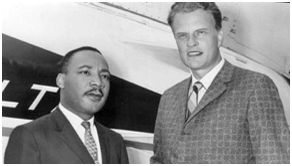 [/vc_column_text][/vc_column][/vc_row][vc_row][vc_column][vc_column_text]
[/vc_column_text][/vc_column][/vc_row][vc_row][vc_column][vc_column_text]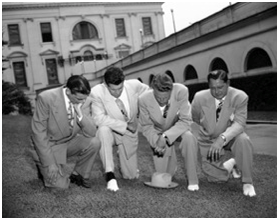 For example, a young Billy Graham, naïve about politics and protocol, once met with President Truman at the White House. Then he went outside and “spilled the beans” about the meeting to reporters. Worse, he took their bait and knelt on the White House lawn to pray for the president. (Hard to imagine, isn’t it? The news media baiting people so they can get a story!)
For example, a young Billy Graham, naïve about politics and protocol, once met with President Truman at the White House. Then he went outside and “spilled the beans” about the meeting to reporters. Worse, he took their bait and knelt on the White House lawn to pray for the president. (Hard to imagine, isn’t it? The news media baiting people so they can get a story!)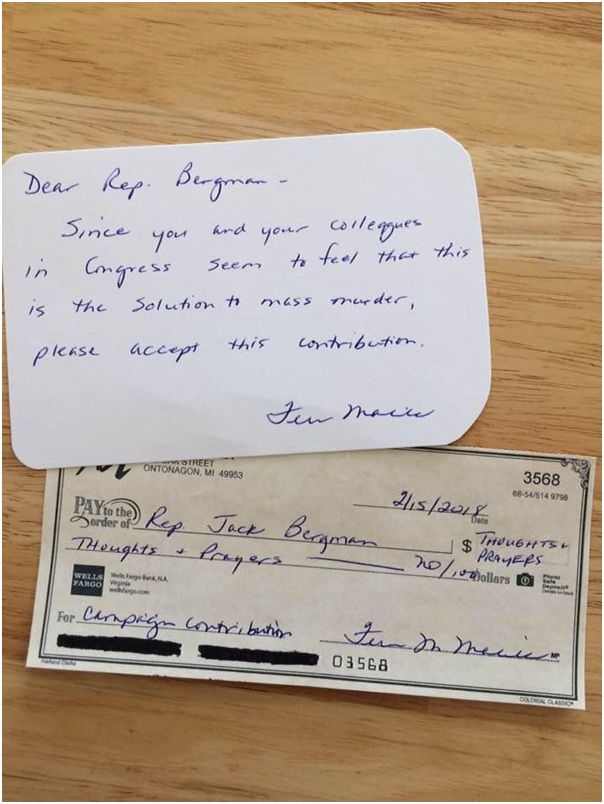
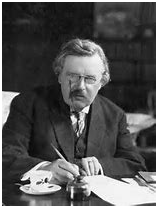 “We do not want a church that will move with the world. We want a church that will move the world.”
“We do not want a church that will move with the world. We want a church that will move the world.”
 [/vc_column_text][/vc_column][/vc_row][vc_row][vc_column][vc_column_text]
[/vc_column_text][/vc_column][/vc_row][vc_row][vc_column][vc_column_text] Roe v. Wade at 45 – Abortion Debate Still Rages
Roe v. Wade at 45 – Abortion Debate Still Rages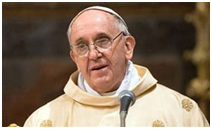 Pope Francis created quite a stir when he recently said that the words [in Italian] “non ci indurre in tentazione” (“Lead us not into temptation”) in the English version are not correct, because, he said, God does not actively lead us into temptation. (Andrea Gagliarducci, National Catholic Register, 12/12/17)
Pope Francis created quite a stir when he recently said that the words [in Italian] “non ci indurre in tentazione” (“Lead us not into temptation”) in the English version are not correct, because, he said, God does not actively lead us into temptation. (Andrea Gagliarducci, National Catholic Register, 12/12/17) February 19: The Presidents Day Un-Celebration — Honoring Not Just the Great, But All U.S. Presidents
February 19: The Presidents Day Un-Celebration — Honoring Not Just the Great, But All U.S. Presidents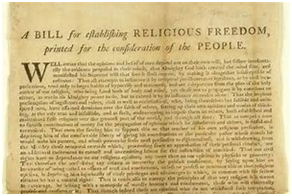 “To compel a man to furnish contributions of money for the propagation of opinions which he disbelieves is sinful and tyrannical.”
“To compel a man to furnish contributions of money for the propagation of opinions which he disbelieves is sinful and tyrannical.” The Virginia Statute for Religious Freedom (1786)
The Virginia Statute for Religious Freedom (1786)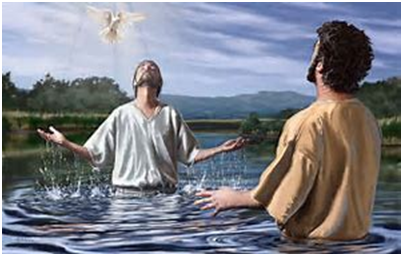 The Meaning of “Epiphany Sunday”
The Meaning of “Epiphany Sunday” [/vc_column_text][/vc_column_inner][vc_column_inner width=”1/2″][vc_column_text]
[/vc_column_text][/vc_column_inner][vc_column_inner width=”1/2″][vc_column_text]

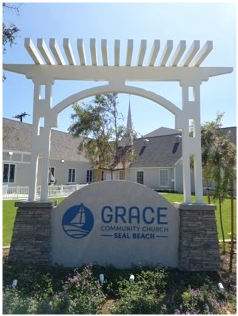 [/vc_column_text][/vc_column_inner][/vc_row_inner][/vc_column][/vc_row][vc_row][vc_column][vc_column_text]Revival – Are our hearts aflame for God and zealous for his will?
[/vc_column_text][/vc_column_inner][/vc_row_inner][/vc_column][/vc_row][vc_row][vc_column][vc_column_text]Revival – Are our hearts aflame for God and zealous for his will? “I contemplate with sovereign reverence that act of the whole American people which declared that their legislature should ‘make no law respecting an establishment of religion, or prohibiting the free exercise thereof,’ thus building a wall of separation between Church & State.” – Thomas Jefferson’s letter to
“I contemplate with sovereign reverence that act of the whole American people which declared that their legislature should ‘make no law respecting an establishment of religion, or prohibiting the free exercise thereof,’ thus building a wall of separation between Church & State.” – Thomas Jefferson’s letter to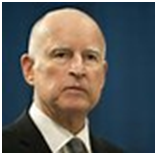 From “Moral Theologian” Gov. Jerry Brown –
From “Moral Theologian” Gov. Jerry Brown – From “Religious Liberty Expert”
From “Religious Liberty Expert” [/vc_column_text][/vc_column][/vc_row][vc_row][vc_column][vc_column_text]
[/vc_column_text][/vc_column][/vc_row][vc_row][vc_column][vc_column_text] Not for the faint of heart. Baraka grew up in the “projects” (as he often calls them) and in this book he withholds no language that he would have used there. Three thoughts from his “journey” stand out: (1) how important good fathers are (in other words, how bad it is to grow up in the “projects” without fathers);
Not for the faint of heart. Baraka grew up in the “projects” (as he often calls them) and in this book he withholds no language that he would have used there. Three thoughts from his “journey” stand out: (1) how important good fathers are (in other words, how bad it is to grow up in the “projects” without fathers); CHARLES WESLEY (1707-1788) and his brother John (1703-1791) were instrumental in establishing the Methodist Reformation, if I may call it that. With a call to conversion, heart-felt faith and personal holiness, this movement spread throughout England and America in the 18th Century and after.
CHARLES WESLEY (1707-1788) and his brother John (1703-1791) were instrumental in establishing the Methodist Reformation, if I may call it that. With a call to conversion, heart-felt faith and personal holiness, this movement spread throughout England and America in the 18th Century and after. “Give us something better, young man!” said a church official to a young ISAAC WATTS (1664-1748). Psalm singing was the order of the day, and Watts was a poetic genius who became frustrated with the low qualities of many “Praise Choruses” of his day that were based on the Psalms. He broke with this legalistic drudgery and created some great English hymnody, earning the title “The Father of English Hymnody”.
“Give us something better, young man!” said a church official to a young ISAAC WATTS (1664-1748). Psalm singing was the order of the day, and Watts was a poetic genius who became frustrated with the low qualities of many “Praise Choruses” of his day that were based on the Psalms. He broke with this legalistic drudgery and created some great English hymnody, earning the title “The Father of English Hymnody”.
 The Advent Wreath points to the birth of Jesus. It has five candles—four red (or three purple and one pink) around a white candle in the center. One candle is lit each Advent Sunday before Christmas. Then Christmas Eve the fifth and center candle. Scripture reading, prayer and singing can fill the home each time.
The Advent Wreath points to the birth of Jesus. It has five candles—four red (or three purple and one pink) around a white candle in the center. One candle is lit each Advent Sunday before Christmas. Then Christmas Eve the fifth and center candle. Scripture reading, prayer and singing can fill the home each time.
 Reformation Thanksgiving A Song During Suffering
Reformation Thanksgiving A Song During Suffering A Psalm for Thanksgiving Season
A Psalm for Thanksgiving Season Taylor Winston, 29, stole a utility pickup truck [emphasis mine] he found on the concert grounds and transported several injured people to the hospital before ambulances could arrive on the scene. The vet said they ran for cover and hopped a fence to get to safety. Once he landed on the other side, he said he reportedly saw a bunch of white trucks.
Taylor Winston, 29, stole a utility pickup truck [emphasis mine] he found on the concert grounds and transported several injured people to the hospital before ambulances could arrive on the scene. The vet said they ran for cover and hopped a fence to get to safety. Once he landed on the other side, he said he reportedly saw a bunch of white trucks. “They all plotted together to come and fight against Jerusalem and stir up trouble against it. But we prayed to our God and posted a guard night and day to meet this threat.” – Nehemiah 4:8-9 (New International Version)
“They all plotted together to come and fight against Jerusalem and stir up trouble against it. But we prayed to our God and posted a guard night and day to meet this threat.” – Nehemiah 4:8-9 (New International Version) “The gates of hell flew open and you emerged as the face of evil in this community.”
“The gates of hell flew open and you emerged as the face of evil in this community.”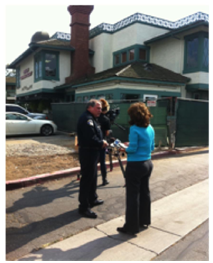 This chapter of the families’ agony is over. But as I told a NBC reporter in 2012, the word “closure” will never be appropriate. There are milestones, but no closures.
This chapter of the families’ agony is over. But as I told a NBC reporter in 2012, the word “closure” will never be appropriate. There are milestones, but no closures. [/vc_column_text][vc_column_text]
[/vc_column_text][vc_column_text] Dr. Wayne S. Flory (1927-2017)
Dr. Wayne S. Flory (1927-2017) [/vc_column_text][/vc_column][vc_column width=”1/2″][vc_column_text]
[/vc_column_text][/vc_column][vc_column width=”1/2″][vc_column_text] [/vc_column_text][/vc_column][/vc_row][vc_row][vc_column][vc_column_text]
[/vc_column_text][/vc_column][/vc_row][vc_row][vc_column][vc_column_text]

 “We hold these truths to be self-evident, that all men are created equal, that they are endowed by their Creator with certain unalienable Rights, that among these are Life, Liberty and the pursuit of Happiness. That to secure these rights, Governments are instituted among Men, deriving their just powers from the consent of the governed.” – Declaration of Independence
“We hold these truths to be self-evident, that all men are created equal, that they are endowed by their Creator with certain unalienable Rights, that among these are Life, Liberty and the pursuit of Happiness. That to secure these rights, Governments are instituted among Men, deriving their just powers from the consent of the governed.” – Declaration of Independence Burgess was interrupted by socialist councilmember Kshama Sawant. She rebuked his “Republican friends” comment and boasted she had no Republican friends—that the leftist cause had no place for this.
Burgess was interrupted by socialist councilmember Kshama Sawant. She rebuked his “Republican friends” comment and boasted she had no Republican friends—that the leftist cause had no place for this.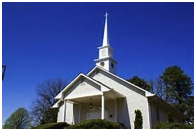 “Congress shall make no law respecting an establishment of religion, or prohibiting the free exercise thereof…” – 1st Amendment
“Congress shall make no law respecting an establishment of religion, or prohibiting the free exercise thereof…” – 1st Amendment “I understand that Christianity is the majority religion. But there are other people who have different religions in this country and around the world. In your judgment, do you think that people who are not Christians are going to be condemned?” * – Sen. Bernie Sanders (I-VT)
“I understand that Christianity is the majority religion. But there are other people who have different religions in this country and around the world. In your judgment, do you think that people who are not Christians are going to be condemned?” * – Sen. Bernie Sanders (I-VT) “Those who accepted his message were baptized…” (Acts 2:41 NIV).
“Those who accepted his message were baptized…” (Acts 2:41 NIV). “They devoted themselves to [I like the King James reading: “They continued steadfastly in”] the apostles’ teaching and to the fellowship, to the breaking of bread and to prayer” (Acts 2:42).
“They devoted themselves to [I like the King James reading: “They continued steadfastly in”] the apostles’ teaching and to the fellowship, to the breaking of bread and to prayer” (Acts 2:42). We need to learn the teachings of the apostles, especially when we’re together under the ministry of pastors and teachers (now that the apostles Jesus chose are gone). This means we need to learn the New Testament.
We need to learn the teachings of the apostles, especially when we’re together under the ministry of pastors and teachers (now that the apostles Jesus chose are gone). This means we need to learn the New Testament. Regular, even weekly, participation in Communion (a renewing and nourishing sign of the sacrificial death of Jesus and what it accomplishes for us and in us by faith) is a key part of a good, healthy spiritual walk.
Regular, even weekly, participation in Communion (a renewing and nourishing sign of the sacrificial death of Jesus and what it accomplishes for us and in us by faith) is a key part of a good, healthy spiritual walk.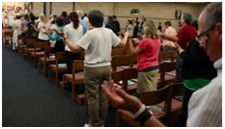 At the very least we must pray together for:
At the very least we must pray together for:



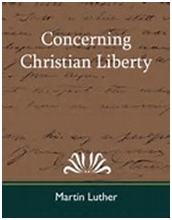

 We don’t have to ask about God’s will in the everyday matters of life. We are free to make our own choices bound only by God’s moral law and principles found in Scripture.
We don’t have to ask about God’s will in the everyday matters of life. We are free to make our own choices bound only by God’s moral law and principles found in Scripture. President Trump’s Executive Order on Religious Liberty and its impact on the “Johnson Amendment”
President Trump’s Executive Order on Religious Liberty and its impact on the “Johnson Amendment”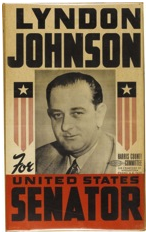 The “Johnson Amendment” forbids tax-exempt churches and other 501(c)3 organizations from endorsing or opposing a candidate for political office. It also forbids these groups from using a “substantial” portion of their resources to influence legislation. “Substantial” may be understood as “more than 5%”, a threshold that only the most politically activist churches would be in danger of crossing.
The “Johnson Amendment” forbids tax-exempt churches and other 501(c)3 organizations from endorsing or opposing a candidate for political office. It also forbids these groups from using a “substantial” portion of their resources to influence legislation. “Substantial” may be understood as “more than 5%”, a threshold that only the most politically activist churches would be in danger of crossing. Good News from Grace
Good News from Grace Don’s Upcoming Ministries
Don’s Upcoming Ministries